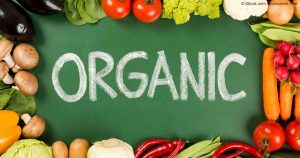It’s Organic September
 Organic September, the UK’s celebration of all things organic, is now upon us. Today, 1 September 2016, the UK’s Soil Association reveals ‘top food swaps’ people can make to support the environment, animal welfare and our health by choosing organic food.
Organic September, the UK’s celebration of all things organic, is now upon us. Today, 1 September 2016, the UK’s Soil Association reveals ‘top food swaps’ people can make to support the environment, animal welfare and our health by choosing organic food.
“Swapping everyday items like carrots, chicken or yogurt for organic alternatives can all make surprisingly large differences,” said Helen Browning, Soil Association chief executive. “If everyone makes a small change we can make a huge difference to our world. Choosing organic means helping protect our vital wildlife and reducing your exposure to potentially harmful pesticides and chemicals. You’ll also be helping to support the farming families who work hard to grow our food with care for the generations to come.”
According to the Soil Association, organic means higher levels of animal welfare, lower levels of pesticides, no manufactured herbicides or artificial fertilisers and more environmentally sustainable management of the countryside. Organic fruit, veg, meat and milk are also nutritionally different, it says, showing the way we farm really does affect the quality of our food.
The Soil Association identified its top ‘swaps’ as follows:
Yogurt: If the 24 million households that buy yoghurt swapped to organic, even just once, almost 2,000 more cows would be free to range on clover rich organic pastures. Meanwhile, organic dairy contains around 50% more beneficial omega-3 essential fatty acids than non-organic. Switching to organic yoghurt will make a big difference to the lives of farm animals.
Carrots: Recently published government data shows almost 80% of non-organic carrot samples contained pesticides. If everyone who currently buys carrots switched to organic, an extra 17,500 football pitches worth of organic land would provide a safe haven for wildlife – there would be around 50% more wildlife and 30% more species of wildlife on the farms used to produce those organic carrots.
Chicken: If everyone switched to organic chicken, around 487 million trees could potentially grow. Approximately 803 million chickens are eaten in the UK each year and the amount of soya fed to these chickens represents almost 488,000 hectares of rainforest which could be destroyed to grow their food.

































